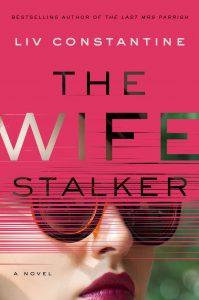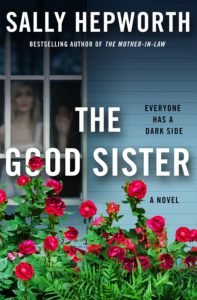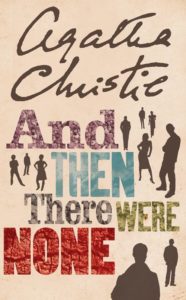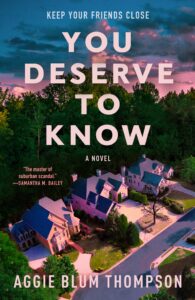There’s nothing more delicious than getting to the end of a mystery only to have the author expertly pull the rug out from under. Done well, an ending that reframes the entire book and turns everything we think we just learned on its head is both dizzying and invigorating, sending us back to chapter one to see if we can spot what was hiding in plain sight all along.
These reversals are a subset of the twist, a literary technique that spins the plot, or the reader’s perception of a character, off in a different direction. Most modern thrillers — especially domestic and psychological suspense — deploy at least one, if not several, twists. But the kind that come at the end and shift the whole book fall into their own special category.
I enjoy reading books with this device so much that I wrote it into my latest domestic suspense novel — You Deserve To Know. I framed the story with a prologue by an unnamed narrator who warns the reader that the book they are about to read cannot be relied upon as truthful, that it serves this narrator’s interest. It isn’t until the last chapter that the reader learns who wrote the “book.” My approach was unusually straightforward: I warned the reader not to trust the veracity of what was about to come, whereas most other books let their revelatory endings sneak up on the reader. Here are a few of my favorites (no spoilers):

These Violent Delights
By Micah Nemerever
A brutal murder kicks off this novel, and by the time you get to the end you may wish it had never been solved. If The Secret History had a love child with Call Me By Your Name, it might look like this queer, toxic, dark academia about two young men and their escalating obsession with each other. Like the true-crime case of Leopold and Loeb — the two college students who kidnapped and killed a boy in 1924 — the two main characters in this book express their ultimate devotion to each other through murder. The book is almost over when you realize that you’ve become overly reliant on one of the two main characters. It’s then that you begin to question everything.

The Wife Stalker
By Liv Constantine
An unreliable narrator is an essential linchpin in these types of endings, and Liv Constantine’s psychological suspense delivers not one, but two in The Wife Stalker. The first voice belongs to a sympathetic woman seemingly struggling to keep her family intact, while the second point of view belongs to a ruthless gold-digger who wants to marry up. The man at the center of this frenzy is hardly the point — you keep reading to see which of these women will prevail. It’s not until the very end that you learn of a relevant detail, carefully omitted, which casts the entire book, and the trustworthiness of the two women, in a startling new light.

The Last House on Needless Street
By Catriona Ward
There’s no pretense about the reliability of one of this book’s narrators — a Bible-quoting cat. The opining feline is one the more obvious signals that this book will dance merrily along the border between mystery and confusion. The novel, which melds horror and psychological suspense, follows the inhabitants of the titular house — a recluse of a man with a drinking problem, an almost-feral teen girl whose treatment appears to be abusive, and the aforementioned cat. Just when you think the book has descended into chaos, the author reels you back from the edge, delivers a few key bits of information and voila, the pieces fall into place. That cat finally makes sense.

The Good Sister
By Sally Hepworth
One could be forgiven at first for thinking this is a family novel about two adult sisters navigating their complicated relationship. Hang on, because these two sisters are not the people they claim or appear to be, and one of them is playing mind games with the reader. These two fully-developed characters have such different takes on their shared troubled childhood, as well as events that unfold during the book, that we are forced to take sides. Only when the truth is revealed do we realize how easily we have been manipulated.

And Then There Were None
By Agatha Christie
Ten guests, ten dead bodies. The locked-room mystery set on a remote island (off the coast of Devon in this case) has been imitated and recreated so many times it feels like a cliché now, but Dame Agatha did it first and, arguably, best. Every death comes as a tiny shock to the reader, and once everyone has been murdered bafflement sets in. It is only in the epilogue, in the form of a letter from the killer, that we learn exactly what happened. It’s not just a clever puzzle box of a novel, although it is that, but a meditation on justice and who among us deserves to mete it out.

Shutter Island
By Dennis Lehane
Starting off with a blast of sea air, we follow a U.S. Marshal and his new partner to a desolate island to investigate the disappearance of a patient from a mental hospital for the criminally insane. But this is much more than a detective tale with a nod to the noir of post WWII, the time period in which the book is set. It’s also a deep dive into the darkest corners of the human mind and an exploration of the stories we tell ourselves to stay alive. Clever readers might pick up the breadcrumbs lining the narrative arc, but it’s not until the very end that the naked truth exposes the depths to which we’ve been deceived.
***


















